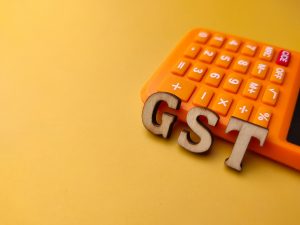
Recently, the Supreme Court has issued a notice in a writ petition challenging the constitutional validity of Sections 149 and 150 of the Finance Act, 2023 that seek to substitute Sections 109 and 110 of the Central Goods and Services Tax Act, 2017 (CGST Act). These provisions relate to the appointments and conditions of service of members to the Appellate Tribunal under the CGST Act.
Petitioner no. 1 is the Sales Tax Bar Association and Petitioner no. 2 is a member of the same. The petition was listed before the Bench of Justices CJI DY Chandrachud, Justice JB Pardiwala, and Justice Manoj Misra.
Particularly, Section 109 provides for the constitution of the Goods and Services Tax Appellate Tribunal and Section 110 talks about qualification, appointment, and conditions of service of the President and Members of the Appellate Tribunal.
The petition assails the impugned provisions on the threshold of law laid down in a series of judgments in the matter of Madras Bar Association cases, right from 2010 to as near as 2021. Pertinently, the Bench has tagged the instant petition with another writ petition that assailed the Tribunals Reforms (Rationalization and Conditions of Service) Ordinance 2021 (now Tribunals Reforms Act, 2021).
The petitioners have challenged the validity of these provisions on several grounds including:
- There is no provision for Advocates to become Judicial Members, which is violative of Union of India v. R. Gandhi, President, Madras Bar Association, 2010 11 SCC 1 (Section 110(1)(b) of the CGST Act).
- Further, it has been argued that the maximum tenure as per the impugned provisions is 4 + 2 years with maximum age limit at 67 years (for President) (Section 110(9) of CGST) and 65 years for Judicial and Technical member (Section 110(10) of CGST) is extremely short and ineffective. As a result, a High Court judge shall have only 3 years of tenure (as judicial member) and a Supreme Court judge shall have only 2 years tenure. The petitioner termed the same as “insignificant and insufficient” for a tribunal constituted for specialized functions.
- Moreover, in Madras Bar Association v. Union of India and Anr., (2022) 12 SCC 455, the Top Court has mandated that the term of a member shall be 5 years.
- Also, the provision of Section 110(14), which opens the window for the President or the members, to appear, act or plead other than before the Principal Bench or the State Bench in which he was the President or, as the case may be, a Member, is violative of principle of prudence and impartiality.
- The petitioner also states that the definition of a principal bench and state to mandatorily have 4 members only is irrational and arbitrary. The same has been illustrated by stating that if at a particular place it is felt to add 2 more members, that will not be possible.
- Besides this, the provisions providing terms, salary and allowances, and removal of members are also in challenge on the ground that it violates the doctrine of separation of powers as there is complete control and discretion of the government in the said sphere.
“Government has the power to transfer members at its own will, and hence there is a clear emasculation of the doctrine of separation of powers.,” petition adds.
-
- Lastly, the petitioner strengthens these arguments by taking support of the 272nd Law Commission report. Therein, it has given its recommendations based on the above stated Judgments, and thus, the petitioners aver that the present provisions are wholly opposed to the said recommendations and the settled principles.


